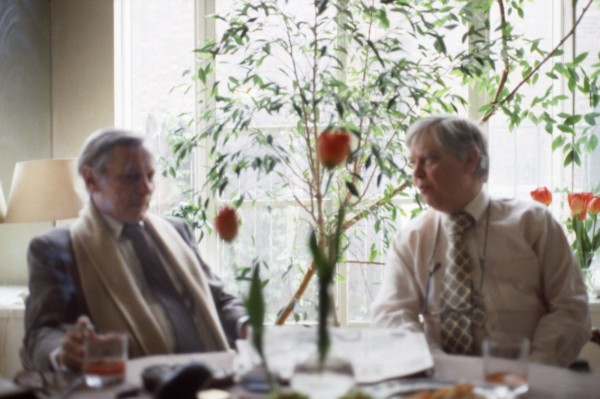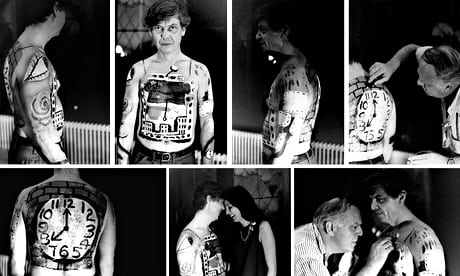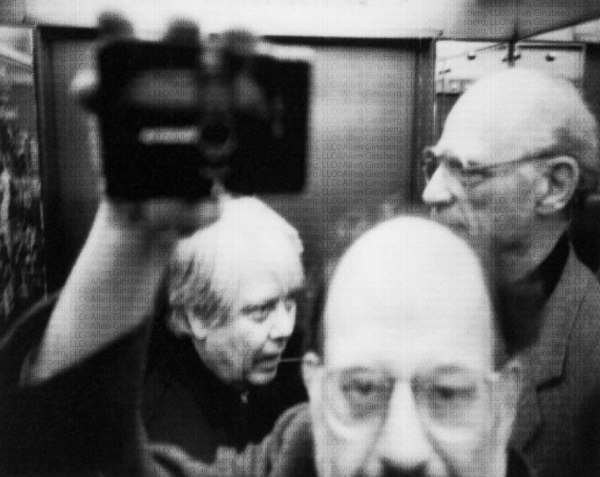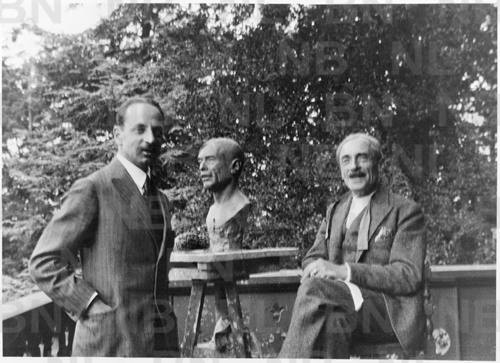RIP William Gass (1924-2017), Rilke & Paul Valéry were His Guiding Lights

William Gaddis and William Gass photo by Mary Gass
New Yorker – the Radical Criticism of William Gass
William Gass, who died this week, argued that the charge of a writer was not to relate a world but to create one—a world of sound, of the melody made when syllables collid
<> <> 
William Gass being painted by Philip Guston before a reading in 1969. Photograph: Digital Gateway Image Collections
Guardian on Gass
Four interviews of William Gass
William Gass’ interview from Believer Magazine.
“But I do have a very conscious desire not to be academic. I’m antiacademic. I hate jargon. I hate that sort of pretension. I am a person who [commits] breaches of decorum—not in private life, but in my work. They are part of my mode of operation. That kind of playfulness is part of my nature in general. The paradox that, in a way, to take something very seriously, you can’t always be serious about it..” (via 3quarksdaily).
On Teaching and writing, interviewed by Jan Garden Castro.
“Gass: I’m interested in making a self-contained system of concepts, ideas that will then define a kind of consciousness. It’s a way of inventing a consciousness by supplying someone with the structure and content of an experience. So I make that up and create that consciousness. It’s not a consciousness of the world; it’s a consciousness of the work.”
On Wittgenstein,
“The intellectual integrity he displayed was awesome, absolutely. I was watching not just a really great mind in operation but also an absolutely honest and pure intellect. I don’t think he was an honest and pure person, but he had that intellect, and you saw it. It was like seeing a great artist in operation—absolute scruple. No second-rate stuff would be permitted. That was really impressive. Again, it was an exemplification. Socrates embodies that way; I’m sure Spinoza must have. And Wittgenstein was the complete embodiment of that quest in himself.”
From Gadfly an interview on William Gass in 1998 – “The Tunnel may well be the greatest prose performance since Nabokov’s Pale Fire, but only the most stalwart readers will be able to last the full trip through Kohler’s anti‑Semitic, sexually-depraved and bathroom‑humor obsessed world. ”
“For instance, I can show in what way a sentence by Henry James “is” a spiral staircase. It has the same thought. And my mind works that way. (From Center for book culture – W.G interviewed by Arthur M. Saltzman)
William H. Gass, Allan Ginsberg, and Arthur Miller outside the apartment house of Fyodor Dostoevsky in St. Petersburg, Russia, 1985
William H Gass (The Soul inside the sentence)
Item (“The Surface of the City” Slide Photographs)
Paul Valery’s influence on William Gass
In William H. Gass’s “Art of Fiction” interview, in 1976, he declared two writers to be his guiding lights—the “two horses” he was now “try[ing] to manage”: Ranier Maria Rilke and Paul Valéry. He added, “Intellectually, Valéry is still the person I admire most among artists I admire most; but when it comes to the fashioning of my own work now, I am aiming at a Rilkean kind of celebrational object, thing, Dinge”

